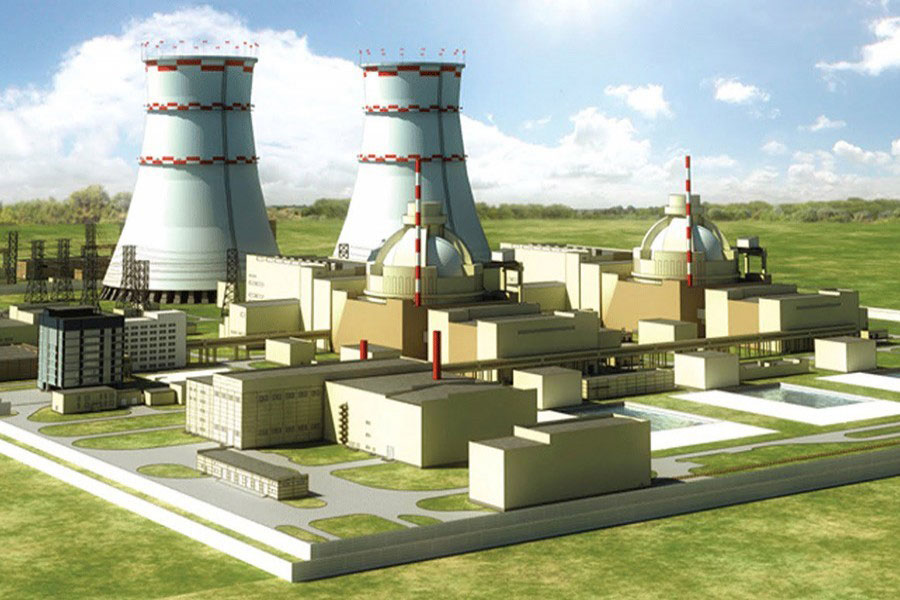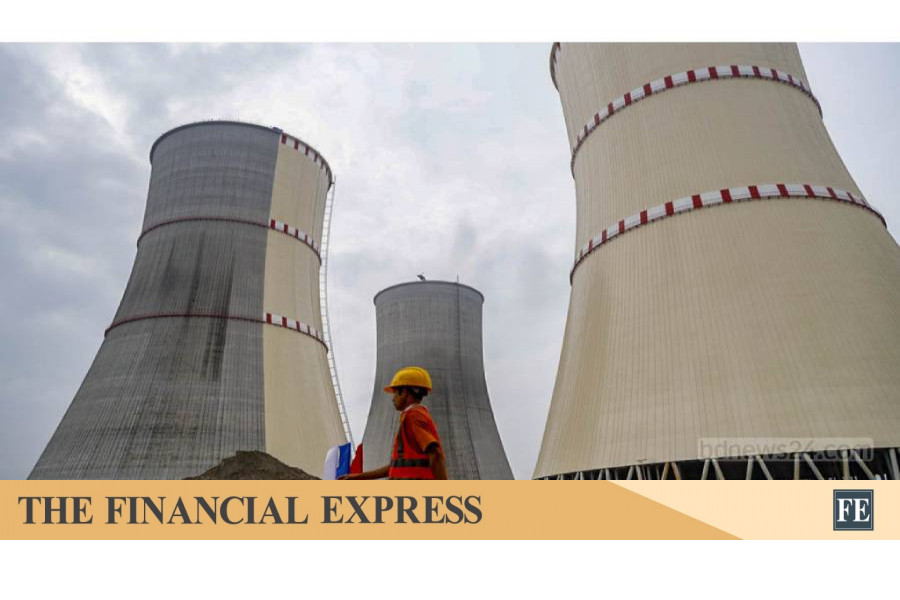Saif
Senior Member
- Joined
- Jan 24, 2024
- Messages
- 17,262
- Likes
- 8,334
- Nation

- Residence

- Axis Group


Rooppur NPP nears grid connection with transformer commissioning
Bangladesh's journey toward nuclear energy took a major step forward as the main and auxiliary transformers at the first power unit of the Rooppur Nuclear Power Plant (NPP) were successfully commissioned. This milestone signals the plant's readiness for integration with the national power grid, br
Rooppur NPP nears grid connection with transformer commissioning
FE REPORT
Published :
Jun 29, 2025 10:19
Updated :
Jun 29, 2025 10:19

Bangladesh's journey toward nuclear energy took a major step forward as the main and auxiliary transformers at the first power unit of the Rooppur Nuclear Power Plant (NPP) were successfully commissioned.
This milestone signals the plant's readiness for integration with the national power grid, bringing the country closer to realising its first-ever nuclear power generation, according to a statement released Saturday by Russia's state-run Rosatom.
The announcement underscores the significance of the development.
The main step-up transformers will convert the 24-kilovolt (kV) electricity generated by the turbine into 400 kV, enabling long-distance transmission through the national grid and supporting a reliable supply system.
Each transformer is engineered to handle up to 1,599 MW, well beyond the plant's 1,200 MW output, offering not just operational stability but also built-in redundancy.
With over 150 kilometres of cabling and components weighing around 400 tonnes per phase, the commissioning highlights a highly technical and coordinated feat achieved under challenging logistical and climatic conditions.
In addition to the main transformers, auxiliary transformers-which are responsible for powering all internal systems of the power unit-have also been commissioned.
These auxiliary units are designed to operate in two modes: receiving electricity either from the external grid or directly from the generator once the power unit is fully operational.
Until now, internal systems relied on standby transformers. The commissioning of the main supply circuit marks a critical shift toward sustained operation.
"This achievement reflects the well-coordinated efforts of all involved teams," said Alexey Deriy, Vice President for Projects in Bangladesh at Atomstroyexport, the engineering subsidiary of Rosatom.
"Despite logistical and climatic challenges, the team delivered excellent results. This is a vital step toward the safe and reliable commissioning of the power unit," he added.
In the coming days, a series of hot functional tests will be carried out at the Rooppur NPP.
These include validation of various safety systems and operational protocols-such as the controlled discharge of steam into the atmosphere, which may produce temporary noise but is entirely safe for nearby residents, according to Rosatom.
Rosatom reaffirmed its unwavering commitment to international safety standards, noting that all construction and commissioning activities are being conducted in compliance with global best practices and regulatory guidelines.
The Rooppur Nuclear Power Plant is Bangladesh's first nuclear energy project and is being implemented with financial and technical assistance from the Russian Federation.
The plant features two Generation III+ VVER-1200 reactors, each with a capacity of 1,200 MW, contributing to a total planned output of 2,400 MW. The Engineering Division of Rosatom is serving as the general contractor for the project.
FE REPORT
Published :
Jun 29, 2025 10:19
Updated :
Jun 29, 2025 10:19
Bangladesh's journey toward nuclear energy took a major step forward as the main and auxiliary transformers at the first power unit of the Rooppur Nuclear Power Plant (NPP) were successfully commissioned.
This milestone signals the plant's readiness for integration with the national power grid, bringing the country closer to realising its first-ever nuclear power generation, according to a statement released Saturday by Russia's state-run Rosatom.
The announcement underscores the significance of the development.
The main step-up transformers will convert the 24-kilovolt (kV) electricity generated by the turbine into 400 kV, enabling long-distance transmission through the national grid and supporting a reliable supply system.
Each transformer is engineered to handle up to 1,599 MW, well beyond the plant's 1,200 MW output, offering not just operational stability but also built-in redundancy.
With over 150 kilometres of cabling and components weighing around 400 tonnes per phase, the commissioning highlights a highly technical and coordinated feat achieved under challenging logistical and climatic conditions.
In addition to the main transformers, auxiliary transformers-which are responsible for powering all internal systems of the power unit-have also been commissioned.
These auxiliary units are designed to operate in two modes: receiving electricity either from the external grid or directly from the generator once the power unit is fully operational.
Until now, internal systems relied on standby transformers. The commissioning of the main supply circuit marks a critical shift toward sustained operation.
"This achievement reflects the well-coordinated efforts of all involved teams," said Alexey Deriy, Vice President for Projects in Bangladesh at Atomstroyexport, the engineering subsidiary of Rosatom.
"Despite logistical and climatic challenges, the team delivered excellent results. This is a vital step toward the safe and reliable commissioning of the power unit," he added.
In the coming days, a series of hot functional tests will be carried out at the Rooppur NPP.
These include validation of various safety systems and operational protocols-such as the controlled discharge of steam into the atmosphere, which may produce temporary noise but is entirely safe for nearby residents, according to Rosatom.
Rosatom reaffirmed its unwavering commitment to international safety standards, noting that all construction and commissioning activities are being conducted in compliance with global best practices and regulatory guidelines.
The Rooppur Nuclear Power Plant is Bangladesh's first nuclear energy project and is being implemented with financial and technical assistance from the Russian Federation.
The plant features two Generation III+ VVER-1200 reactors, each with a capacity of 1,200 MW, contributing to a total planned output of 2,400 MW. The Engineering Division of Rosatom is serving as the general contractor for the project.








































